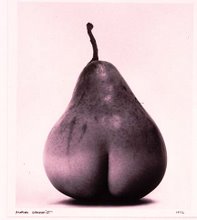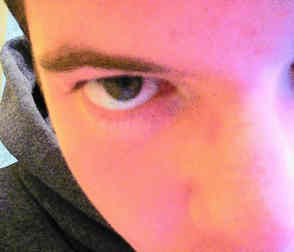President Vladimir Putin chose a little-known government official to become Russia's new prime minister Wednesday (effectively dissolving the government), a surprise move that set off fevered speculation over whether loyal technocrat Viktor Zubkov was being groomed to replace Putin next spring.
The move came a few hours after Putin dissolved the Cabinet of his long-serving prime minister, Mikhail Fradkov, saying he needed to appoint a government better suited to the election campaign and to "prepare the country" for life after the elections.
The nomination of Zubkov, who has overseen investigations into suspicious financial transactions, caught much of the political elite off guard, which appeared to be Putin's intention.
Most observers said they did not see Zubkov as Putin's successor, but rather as a caretaker prime minister, perhaps to be replaced closer to the March presidential vote. Others said they considered his appointment a signal of Putin's intention to retain control after he leaves the presidency.
In promoting Zubkov, whose nomination could be approved by the lower house of parliament as soon as Friday, Putin showed he is still calling the shots.
The plucking of Zubkov from relative obscurity reminded many Russians of Putin's own ascension to power, which began when former President Boris Yeltsin suddenly named him prime minister in August 1999. After the Kremlin secured control over the lower house of parliament in elections the following December, Yeltsin again shocked the nation by stepping down on the last night of the year and naming Putin acting president.
Source: http://www.cnn.com/2007/WORLD/europe/09/12/russia.parliament.ap/index.html
Wednesday, September 12, 2007
Sunday, September 9, 2007
,,Die Augen sind die Seelefenster"
That's a nifty little german phrase, its english-approximate being "Eyes are the window of the soul." And as it turns out, it may just be true. Anthropologists have uncovered some interesting findings about our eyes and how others percieve us.
Of course, how we "read" people determines an essential aspect of choosing your future partner. As it turns out, the iris of the eye has two physical traits that have been linked to personality differences. The number of "crypts" or pits in the iris signal how likely you are to be warm, tender and trusting. And the number of "furrows," or curving lines along the outer edge of the iris, signal the degree to which you are likely to be neurotic, impulsive and willing to assuage your cravings. In both cases, the more crypts or furrows, the more likely you are to be, respectively, tender hearted or spontaneous. These traits develop in the womb. In short, we have evolved a remarkable and subtle biological strategy to signal who we are.
In an evolutionary sense, this is a very efficient strategy of helping determine potential mates -- afterall, anything that saves time (instead of spending several months or even years trying to figure out if someone is really loyal, or just manipulative) is inheriently energy saving. Thus, you save resources; and have a better chance of survival. In a wider sense; finding loyal mates that will stick around and support offspring, and yourself, is in terms of survival: excellent.
This also leads to some interesting aspects of culture and history. Nearly every culture throughout history has accentuated the eyes to some extent. Ancient near-eastern peoples would use makeups. For Egyptians specifically, both men and women would use mascara to draw attention to the eyes (plus, the darker paints around the eyes reduce sun-glare -- similar to the way modern day football players stripe their faces before a game.) Not to mention cultural rules on maintaining eye-contact.
Source: http://www.helenfisher.typepad.com/
Of course, how we "read" people determines an essential aspect of choosing your future partner. As it turns out, the iris of the eye has two physical traits that have been linked to personality differences. The number of "crypts" or pits in the iris signal how likely you are to be warm, tender and trusting. And the number of "furrows," or curving lines along the outer edge of the iris, signal the degree to which you are likely to be neurotic, impulsive and willing to assuage your cravings. In both cases, the more crypts or furrows, the more likely you are to be, respectively, tender hearted or spontaneous. These traits develop in the womb. In short, we have evolved a remarkable and subtle biological strategy to signal who we are.
In an evolutionary sense, this is a very efficient strategy of helping determine potential mates -- afterall, anything that saves time (instead of spending several months or even years trying to figure out if someone is really loyal, or just manipulative) is inheriently energy saving. Thus, you save resources; and have a better chance of survival. In a wider sense; finding loyal mates that will stick around and support offspring, and yourself, is in terms of survival: excellent.
This also leads to some interesting aspects of culture and history. Nearly every culture throughout history has accentuated the eyes to some extent. Ancient near-eastern peoples would use makeups. For Egyptians specifically, both men and women would use mascara to draw attention to the eyes (plus, the darker paints around the eyes reduce sun-glare -- similar to the way modern day football players stripe their faces before a game.) Not to mention cultural rules on maintaining eye-contact.
Source: http://www.helenfisher.typepad.com/
Subscribe to:
Posts (Atom)




